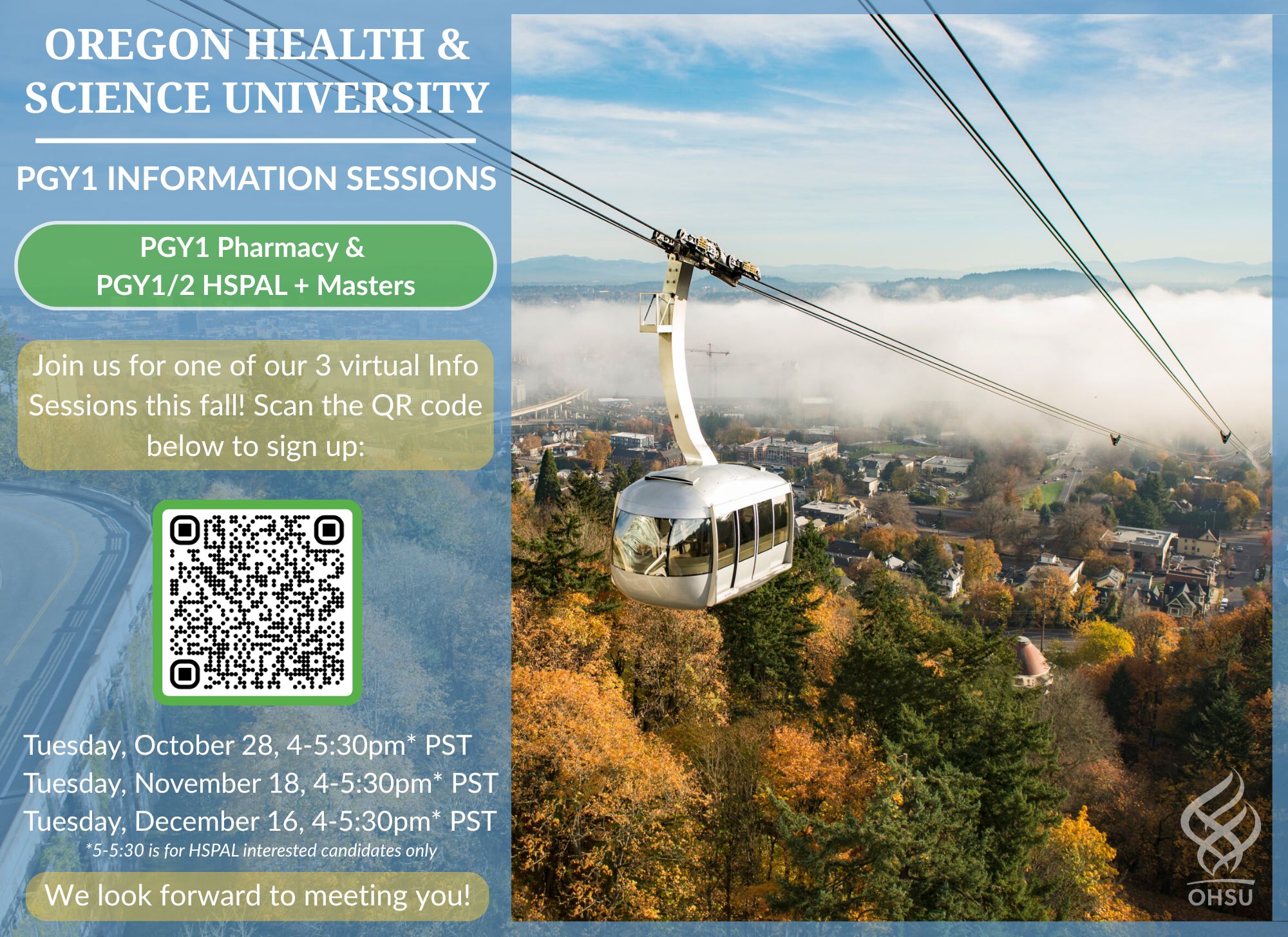Residency Programs
OHSU Pharmacy Residencies

“Scan the QR code or click here to sign up for an information session!”
As Oregon's only academic medical center, the Oregon Health & Science University (OHSU) Department of Pharmacy Services is committed to teaching the next generation of pharmacy practitioners. We proudly offer four residency programs accredited by the American Society of Health-System Pharmacists (ASHP). A total of up to twelve positions are available each year: five positions for practitioners interested in the PGY1 Pharmacy Residency, one specialty residency position in PGY2 Pharmacy Informatics, two specialty two-year residency in PGY2 Health-System Pharmacy Administration, one specialty position in PGY2 Critical Care Pharmacy, and two specialty residency positions in PGY2 Oncology Pharmacy. Additionally, we offer one specialty residency position in PGY2 Infectious Disease Pharmacy, a program starting in 2019.
Our programs are highlighted annually at the ASHP Midyear Clinical Meeting during the Residency Showcase.
Clinical and specialized services
Patient evaluation, including identifying potential and actual medication-related problems and preventing and resolving medication-related problems, is provided by OHSU decentralized clinical pharmacists and College of Pharmacy faculty to all OHSU inpatients. Clinical pharmacists practice in the following locations (click to expand):
- General medicine
- Family medicine
- General surgery
- Solid organ transplantation
- Adult and pediatric oncology and bone marrow transplantation
- General pediatrics/neonatology
- Adult and pediatric critical care
- Emergency room medicine
- Cardiology
- Infectious diseases
- Nutritional support
- Geriatric assessment clinic
- Outpatient parenteral treatment unit
- HIV ambulatory clinic
- Hepatitis C ambulatory clinic
- Rheumatology ambulatory clinic
- Internal medicine clinic
- Adult and pediatric oncology clinics
The department also operates a mail order pharmacy, a specialty pharmacy, multiple community pharmacies, a drug information service, a research pharmacy service, and a drug policy program. A centralized distribution model serves the medical/surgical population and medical/surgical specialties. Pharmacists in these areas provide medication profile review and front-line drug information services. Automated dispensing, an electronic health record with provider order entry technology, and bar code medication administration is used throughout the hospital.